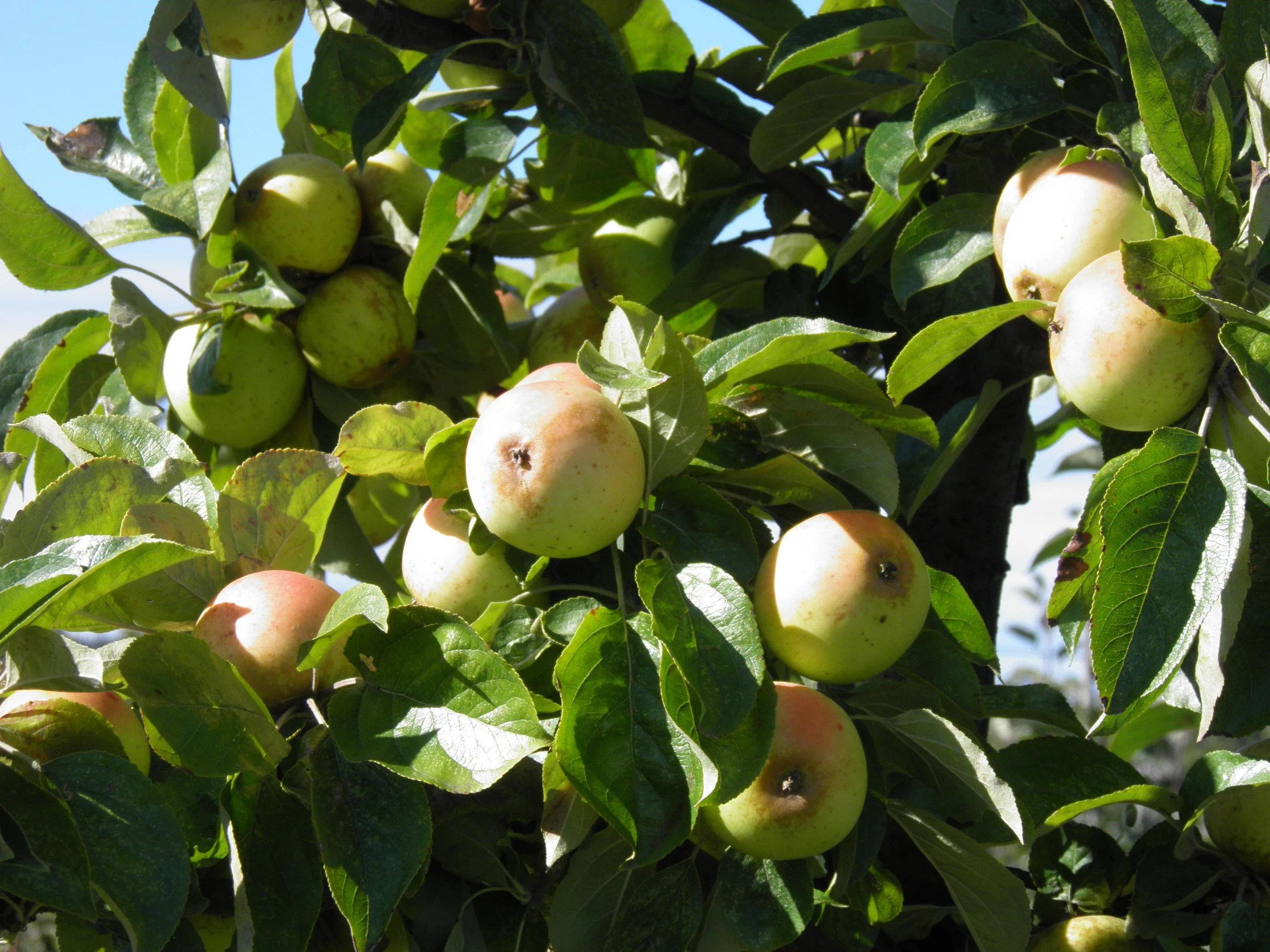This story was originally published in the Winter 2017 issue of Grass/Roots. Read the whole issue here!
by Ryan Gaughn, Alcohol Buyer
It was a People’s customer who first clued me in to Finnriver products. Having tried a cocktail featuring raspberry brandy wine, they started to look around the city to buy a bottle, without much luck. I contacted Finnriver, who dispatched a sales rep to our store almost immediately. From the moment I first tasted that raspberry brandy wine, I knew these products were something special, and a cursory view of Finnriver’s business ethics, particularly with land and animal stewardship, fell right in line with our values as a co-op.
In late September 2016 I was invited to participate in a tour of Finnriver’s farms and cidery, located in the beautiful Chimacum Valley in Washington’s Olympic Peninsula. Along with other alcohol buyers and retailers from Oregon & Washington, I was treated to a first hand, in-depth look at how this cidery accentuates a regional growing and production focus, coupled with a commitment to responsible agricultural practices acting in harmony with the region’s lush natural ecosystem.
Finnriver maintains two farms in the Chimacum area. The central hub of production for the cidery is located just 3 miles away from Finnriver’s main apple & pear orchards. This property hosts vegetable, berry, and hoop-house gardening operations which provide supplemental ingredients in Finnriver products. It was here that I received a tour of the cider making process. Large bushels of apples are primed and pressed, with juice separating from the pulp in a mechanized pressing. From there, the fresh juice is pumped into massive fermentation tanks, where the addition of yeast and other ingredients encourages the magic that brings cider to life.
This production facility is seamlessly integrated with the certified organic farm that surrounds it. The entire property is also certified Salmon Safe. Through intentional efforts by Finnriver, spawning salmon have recently begun to return to a creek that runs through the property, after generations of absence due to environmental harm from livestock farming in the area.
Later in our tour, we travelled to Finnriver’s newest property acquisition, a 50 acre certified organic orchard. Finnriver has been integral in converting this lush soil, which was used as dairy land since the late 1800s, into a magnificent orchard of several thousand apple and pear trees. Many of these trees are traditional, tannic varieties of apples not commonly found in grocery stores. This location is also where Finnriver has its tasting room and bottle shop, where many extra special products not currently available for sale in Oregon can be tasted and purchased.
Finnriver operates both properties in partnership with the Jefferson Land Trust. This partnership ensures that the land on which Finnriver operates will remain designated for agricultural purposes in perpetuity — an important protective measure in an area of the state where extra-urban development is increasing (the Chimacum Valley is located South of Port Townsend, across the Puget Sound from Seattle). Much like Our Table Cooperative, a farm operation based out of Sherwood, Oregon which also borders areas experiencing urban development, land trusts help integrate food resources, sustainability, and the needs of urban dwellers by maintaining legally binding regulations which protect agricultural land for future generations.
Oh, and Finnriver cider is really tasty, too! I strongly encourage you to try out some of my favorites!
The Contemporary Series of ciders are the most widely distributed and produced of Finnriver’s selection. The introduction of a small amount of organic cane sugar in the production process helps round out the dryness of the cider, without creating an overly sweet “apple juice” like effect. Two of my favorites are the Sparkling Black Currant, which has an amazing, deep purple wine-like color, and the Habanero, an infused cider that leaves a really exciting spiciness in the endnotes.
If you’re looking for something to bring to a special occasion or dinner, consider the Artisan Méthode Champenoise Sparkling Cider. This painstaking cider-making process requires a secondary fermentation process that takes place in the bottle, which results in a very effervescent sparkling beverage similar to champagne. This bottle is a great substitute for wine, and definitely more on the dry end of the cider spectrum.
For something completely different, pick up a bottle of Raspberry Brandy Wine, a higher alcohol content dessert wine. Raspberries grown on Finnriver farms are coupled with apple brandy wine, producing a dessert beverage to be enjoyed in small pours. Finnriver brandy wines are very versatile, and can be used as toppings on ice cream, in homemade salad dressings, and as a lively kick to sparkling water, to name a few.
Definitely keep an eye out for Finnriver’s Seasonal Botanical ciders. This is a rotating series of bottles that feature unique combinations of herbs and ingredients. In the beginning of 2017, keep an eye out for Cranberry Rosehip and Solstice Saffron.







